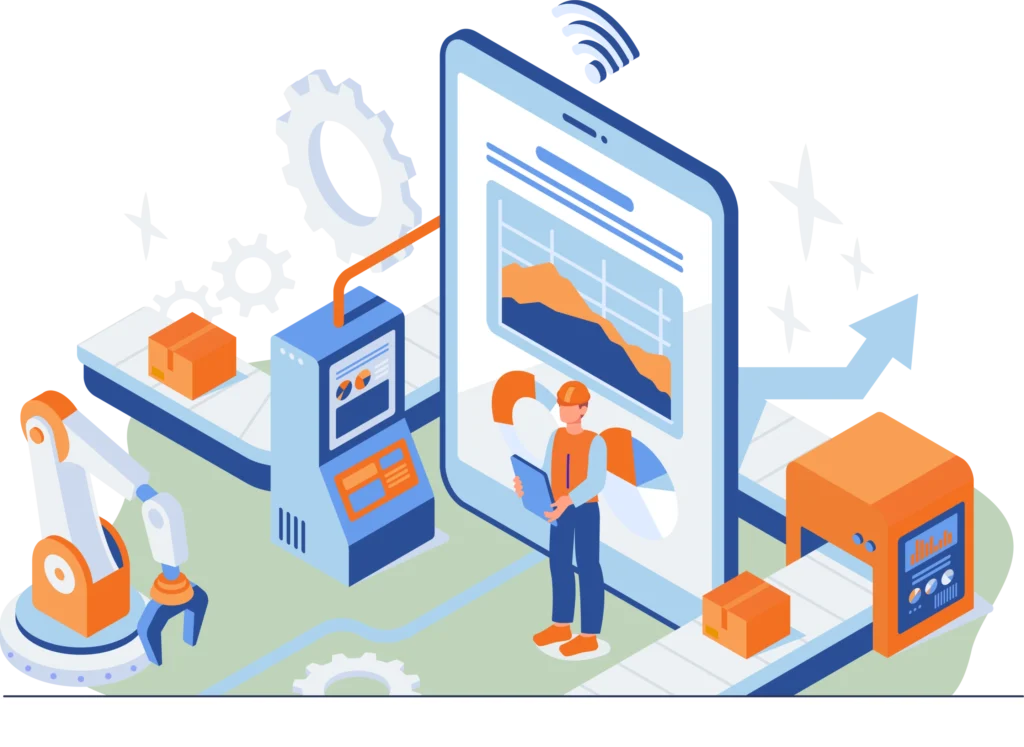Why is MES software so important for manufacturers compared to the ERP? And why do large manufacturers with expensive big-brand ERP systems still use MES software like AspectPL on the production floor?
MES (Manufacturing Execution System) and ERP Enterprise Resource Planning) software serve very different purposes and provide distinct types of information. While ERP software primarily focuses on managing business processes and data at the enterprise level (supply chain, accounting, inventory), MES software is specifically designed to provide detailed information and control over manufacturing operations on the factory floor. Here’s how MES software provides factory floor detail compared to ERP software.
- Real-time production data: MES software collects real-time data on machine status, production progress, quality metrics and material consumption. This real-time data provides visibility into production and enables operators, supervisors and managers to monitor production closely. In contrast, ERP software typically provides aggregated and historical data, focusing more on financials, inventory levels and order management at the enterprise level. There is no insight at a factory floor level.
- Shop floor control and execution: MES software is designed to control and execute manufacturing operations on the factory floor. It manages work orders, schedules tasks, assigns resources and tracks progress. Operators can access work instructions, record actual production data and report issues or delays directly within the MES. On the other hand, ERP software has virtually no shop floor control or monitoring capabilities and focuses more on higher level planning, procurement and financial aspects of the manufacturing process.
- Detailed production tracking and traceability: MES software enables comprehensive tracking and traceability of production activities. It captures data on material and process parameters, test results and operator actions throughout the production lifecycle. This level of detail allows for full traceability of products, quality management and compliance within industry standards and regulations. While ERP software may have some basic tracking capabilities, it typically lacks the depth and granularity of data provided by MES software for detailed production tracking.
- Workflow and resource management: MES software provides tools for managing workflows and resources on the factory floor. It guides operators through predefined work instructions, enforces standard operating procedures (SOPs) and ensures proper sequencing of tasks. The MES optimizes resource allocation, monitors machine utilization and alerts operators and supervisors about potential bottlenecks or issues. In contrast, an ERP focuses more on managing resources at an enterprise level, such as inventory, procurement, and capacity planning, rather than detailed shop floor workflows and real-time resource monitoring.
- Production performance analysis: MES software offers robust production performance analysis capabilities. It provides real-time visibility into key performance indicators (KPIs), such as cycle times, throughput, scrap rates and overall equipment effectiveness (OEE). These analytics enable continuous improvement initiatives, identify areas for optimization and support data-driven decision-making on the shop floor. While an ERP may provide some high-level performance metrics, it often lacks the depth and granularity needed for detailed shop floor performance analysis.
In summary, ERP software emphasizes broader business processes and data management at the enterprise level. MES software focuses on providing factory floor detail by collecting real-time data, controlling manufacturing operations, enabling detailed tracking and traceability, managing workflows and resources and offering comprehensive production performance analysis. Both systems play important roles in manufacturing operations, but ERP software cannot supply the detail about production that MES software does. Smart manufacturers are leveraging their investment in the ERP system by implementing a true real-time integrated MES like AspectPL to drive productivity improvements.

